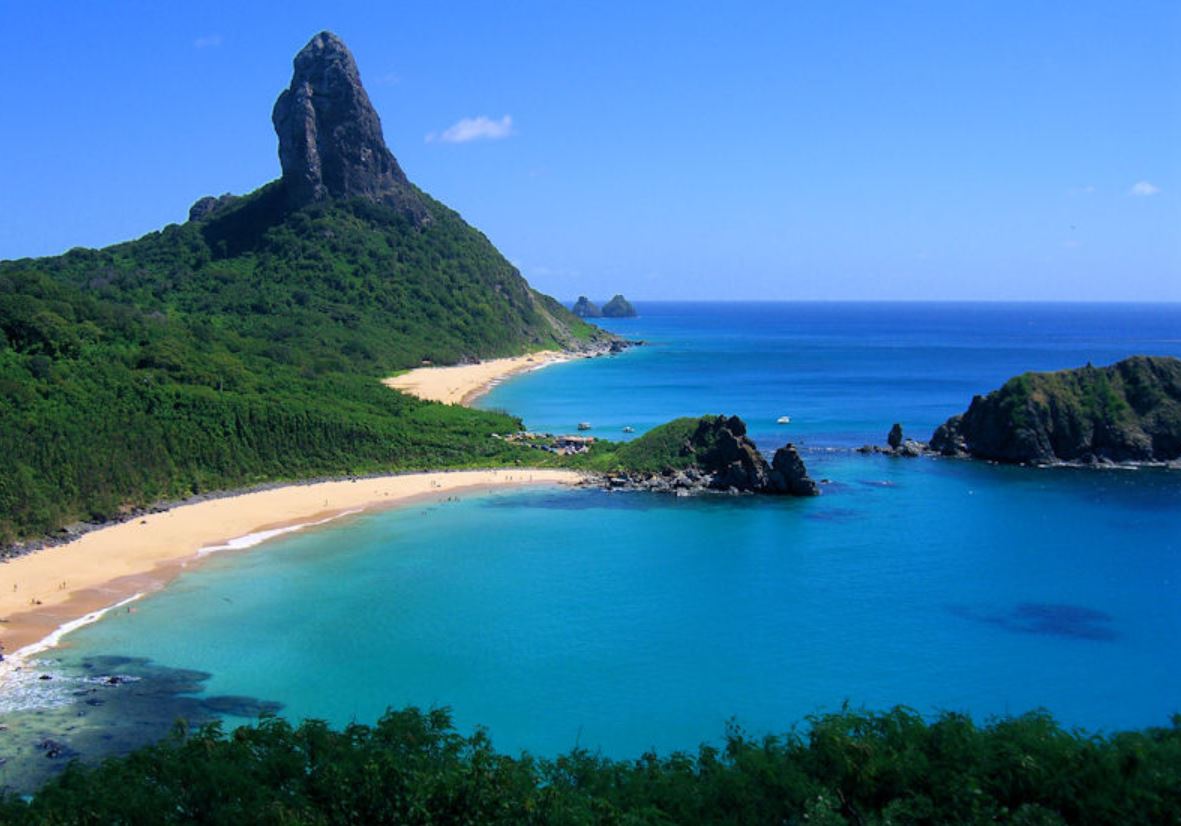The Jewish Pirate Who Conquered Brazil
Moses Cohen Henriques (b. 1595) was born to a family of Sephardic Jews who had been forcibly converted to Christianity. The family eventually made their way to Amsterdam and returned to their Jewish faith. Henriques joined the Dutch navy, and rose up through the ranks to be the right-hand man of famed Dutch admiral Piet Hein. Together, they defeated the Spanish fleet off the coast of Cuba in 1628. Following this, Henriques went to scout the Portuguese colony of Pernambuco, Brazil as a spy, to prepare for a Dutch invasion. He was part of that invasion in 1630, leading a contingent of 3000 men to successfully capture the colony. Henriques helped to turn the area into a Jewish refuge, bringing in America’s first rabbi, and establishing the first synagogue, mikveh, and yeshiva in the New World. When the Portuguese recaptured the colony in 1654 and restarted persecution of Jews, Henriques fled along with the rest of the Jewish community. To survive harsh times, he was forced to become a pirate, soon joining the infamous Henry Morgan. He became Sir Morgan’s trusted advisor. Henriques later ventured on his own, establishing a pirate island off the Brazilian coast. The Inquisition sought to capture him for years, unsuccessfully, and Henriques saw it as his mission to avenge the evil that the Spanish and Portuguese had done to the Jews. After the English conquered Jamaica, Henriques settled there and lived out the rest of his life on the island, helping to establish its Jewish community. When his old friend Henry Morgan became Jamaica’s governor, he gave Henriques a full pardon for piracy in 1681.
Words of the Week
The Jews are our chief supplyers in Barbadoes, and would sell very cheap, and give one not seldom two years to pay, by which credit the poorer sort of planter did wonderfully improve their condition.
– Sir Thomas Modyford (d. 1679), English governor of Barbados and Jamaica
*The biography above is adapted from Jewish Pirates of the Caribbean, by Ed Kritzler.


 Fernão de Loronha (c. 1470-1540) was born in Lisbon, Portugal to a Sephardic Jewish family that had been forcibly converted to Christianity by the Inquisition. Like many such families, they continued to practice Judaism in secret. Loronha became a wealthy merchant, and also worked for the German Augsburg banking family. He was knighted by King Manuel I of Portugal (and for this reason, was often associated with the Noronha nobility, being incorrectly referred to as “Fernando de Noronha”.) In 1501, he financed a Portuguese expedition to explore the newly-discovered lands of South America, then called Vera Cruz. Scholars believe his primary motivation was finding a new home for persecuted Jews, where they could finally live free of the Inquisition. Some say Loronha captained the expedition himself, and we know for sure that on board was Amerigo Vespucci (after whom “America” is named). At the time, Europeans imported expensive red dyes made from brazilwood from India. Loronha came back to Portugal in 1502 describing the abundant brazilwood in the new lands and the opportunity for great riches. King Manuel gave him an exclusive ten-year charter for all the commercial rights to brazilwood in Vera Cruz. In exchange, Loronha had to send at least six ships per year on behalf of Portugal, build a fort for the Portuguese military, explore new coasts, and pay the crown 4000 ducats per year. His first six-ship fleet set forth the following year, establishing the first brazilwood factories in the New World. Soon, vast amounts of the precious dye were being imported to Europe, making it the continent’s second most valuable commodity (after gold). The fleet also discovered a new group of islands, which Vespucci named São Lourenço, or São João. Shortly after, a grateful King Manuel gave the islands as a gift to Loronha and his descendants, and made him the first official donatario (“administrator”) in South America. Today, the idyllic islands are still referred to as “Fernando de Noronha” in his honour. Unlike many other colonists, Loronha did not employ slaves, and obtained all the brazilwood through trade with local natives. Most interestingly, it was Loronha who was responsible for renaming the new land to “Brazil” instead of its original name, Vera Cruz. Still a Jew at heart (and soul), Loronha did not want to use the Christian term Vera Cruz (meaning “True Cross”), so he would always refer to it in all of his business dealings as “Brazil” instead. The new name stuck. Similarly, he renamed his main ship from São Cristóvão (“Saint Christopher”) to A Judia (“The Jewess”). In 1506, his crew on that ship discovered a set of islands in Mozambique, named Bassas da Judia. Today, the name has been corrupted to “Bassas da India”.
Fernão de Loronha (c. 1470-1540) was born in Lisbon, Portugal to a Sephardic Jewish family that had been forcibly converted to Christianity by the Inquisition. Like many such families, they continued to practice Judaism in secret. Loronha became a wealthy merchant, and also worked for the German Augsburg banking family. He was knighted by King Manuel I of Portugal (and for this reason, was often associated with the Noronha nobility, being incorrectly referred to as “Fernando de Noronha”.) In 1501, he financed a Portuguese expedition to explore the newly-discovered lands of South America, then called Vera Cruz. Scholars believe his primary motivation was finding a new home for persecuted Jews, where they could finally live free of the Inquisition. Some say Loronha captained the expedition himself, and we know for sure that on board was Amerigo Vespucci (after whom “America” is named). At the time, Europeans imported expensive red dyes made from brazilwood from India. Loronha came back to Portugal in 1502 describing the abundant brazilwood in the new lands and the opportunity for great riches. King Manuel gave him an exclusive ten-year charter for all the commercial rights to brazilwood in Vera Cruz. In exchange, Loronha had to send at least six ships per year on behalf of Portugal, build a fort for the Portuguese military, explore new coasts, and pay the crown 4000 ducats per year. His first six-ship fleet set forth the following year, establishing the first brazilwood factories in the New World. Soon, vast amounts of the precious dye were being imported to Europe, making it the continent’s second most valuable commodity (after gold). The fleet also discovered a new group of islands, which Vespucci named São Lourenço, or São João. Shortly after, a grateful King Manuel gave the islands as a gift to Loronha and his descendants, and made him the first official donatario (“administrator”) in South America. Today, the idyllic islands are still referred to as “Fernando de Noronha” in his honour. Unlike many other colonists, Loronha did not employ slaves, and obtained all the brazilwood through trade with local natives. Most interestingly, it was Loronha who was responsible for renaming the new land to “Brazil” instead of its original name, Vera Cruz. Still a Jew at heart (and soul), Loronha did not want to use the Christian term Vera Cruz (meaning “True Cross”), so he would always refer to it in all of his business dealings as “Brazil” instead. The new name stuck. Similarly, he renamed his main ship from São Cristóvão (“Saint Christopher”) to A Judia (“The Jewess”). In 1506, his crew on that ship discovered a set of islands in Mozambique, named Bassas da Judia. Today, the name has been corrupted to “Bassas da India”.
